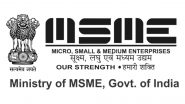You have brainstormed on the business idea, have your plan, have done your research work, and now want to start executing it. The hurdle you face at first is the lack of financial backing. One of the most necessary components of any successful start-up is the capital. We encounter entrepreneurs struggling with one obvious question, how to fund their start-up.
We are here with a solution to this problem. We realize it is tough to get a loan for a start-up, but it's not impossible after all. With many government policies accessible to MSMEs and start-ups, you can climb this hurdle and reach your destination.
Here is a list of various Government Schemes which are surely advantageous for your start-up and can assist you to take the idea off the ground.
Stand-up India
The Stand - Up India strategy was launched in 2016 for financial assistance to SC/ST and Women entrepreneurs. It aids bank loans starting from Rs 10 Lakh to Rs 1 Crore. This option is available for domains of manufacturing, services, or trading.
One of the benefits of this scheme is that the loan amount will cover 75 percent of the total venture cost. The entrepreneur is supposed to bear a minimum of 10 percent of the total project cost as Stand - Up India Loan Scheme. Stand Up Scheme will be administered via the banks and to get the loan you will require collateral or a CGFSIL (Credit Guarantee Fund Scheme for Stand-Up India Loans)
Bank Credit Facilitation Scheme
For satisfying the credit requirements of small and medium-size industries, the NSIC has approved a memorandum of harmony with various national and private banks in India. This scheme proposes to provide various MSMEs with credit support.
This scheme offers unsecured loan facilities to the MSME business. They can avail terms of loans or working capital loans under this scheme, and it will be collateral-free or need of the third-party guarantee for availing credit.
Pradhan Mantri Mudra Yojana
Pradhan Mantri Mudra Yojana (PMMY) is contributing support to the MSME sector, which includes manufacturing units, food service, and small industries, including allied agricultural activities. PMMY scheme was launched in the year 2015, under various categories such as Shishu, Kishor, and Tarun. The maximum amount of loan that could be taken ranges from Rs 50,000 and Rs 10 lakhs.
To benefit from this scheme, one must be 18-year-old or above and have no defaulted loan repayment under their name. Any individual business owner could apply to this scheme, be it a private limited organization or a public sector company. Talking of the interest rate, it is nominal and varies from bank to bank.
Credit Guarantee Scheme (CGS)
The CSG scheme for MSMEs was established by the Government of India to provide them with collateral-free credit. One of the most exciting and essential features of this scheme is that it could be availed both by the existing startups and the ones that are still in the process.
The goal of the strategy is to decrease the stagnation of MSME growth, which has been adversely affected due to financial limitations. The lending is given to public, private, and foreign banks, with the regional rural banks.
You are required to analyze a few factors before applying for a business loan that works best for your start-up. Getting a business loan is not that difficult, but you need to do comparative research and figure out which financing option will work for you.
For the micro-enterprises, the government making all efforts to offer business loans to start-ups and MSMEs. We have mentioned a few schemes in the article, but there are more schemes launched by the Government for the benefit of the growth of the start-ups.



















